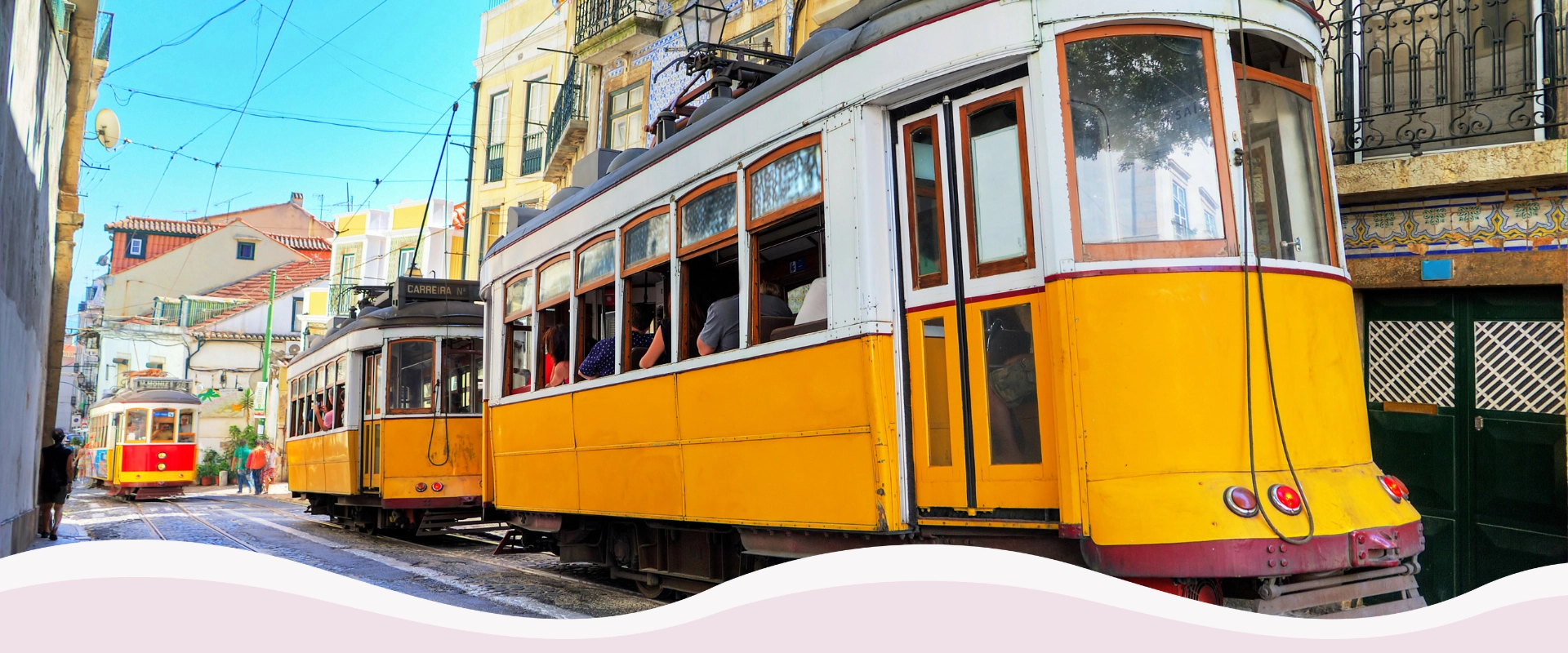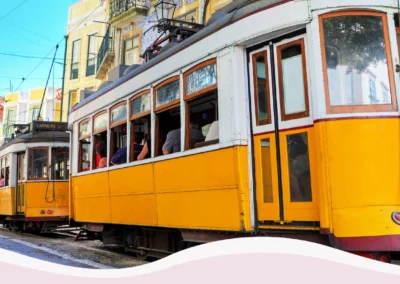Lisbon is internationally known for its unique charm, where historic streets, vibrant monuments, and stunning views over the Tagus River blend into an unforgettable experience for both visitors and residents. With traditionally hot and dry summers, Lisbon is also among the Mediterranean cities most exposed to the growing effects of climate change, facing increasingly frequent and intense heatwaves.
In 2022, Lisbon recorded historic temperatures exceeding 40°C and experienced three prolonged heatwaves, a situation that repeated in 2023 and is likely to occur again in 2025. These extreme events are already significantly impacting the tourist experience, reducing thermal comfort and forcing visitors to avoid outdoor activities during the hottest hours of the day. The city is responding with continuity to its environmental commitments and climate policies.
In Lisbon and the other pilot cities, the Cool Noons project seeks to respond directly to this challenge with a clear strategy: to improve both the visitor experience and residents’ quality of life through the creation of urban cool paths. These routes integrate nature-based solutions, water points, and shaded areas that can be quickly and creatively implemented in public spaces most exposed to heat. The project thus reinforces Lisbon’s broader environmental agenda.
Lisbon identified and mapped two pilot routes, in Monsanto and Alvalade, selected based on their tourist interest, thermal comfort potential, and connectivity with green areas and cultural amenities. These “cool paths” guide visitors through naturally shaded areas, urban vegetation, water points, and less explored parts of the city, offering a more pleasant experience even during the hottest periods. Their design was based on scientific methodologies such as least-cost path analysis and optimal regional connectivity, considering tourist origin-destination areas, points of interest, and thermal refuge zones. The two paths also reflect the diversity of Lisbon’s identity: the Alvalade route highlights architectural and historical heritage, while the Monsanto route showcases the city’s environmental legacy, a greener Lisbon.
Recognizing that public space is experienced differently by each person, Lisbon organized a structured participatory process involving residents, municipal technicians, and specialists. A co-design workshop held in November 2024 brought participants together to develop proposals for each path based on criteria such as thermal comfort, innovation, technical feasibility, and budget. Through collaborative dynamics, priority interventions were identified, including vegetative shading, pavement improvements, water points, and interactive signage, and participants built physical models using Lego to prototype ideas and facilitate solution communication.
Lisbon launched the environmental photo contest “Monsanto Inspira”, supported by the Cool Noons project, to highlight the Monsanto Forest Park as a climate refuge and symbol of urban biodiversity. The initiative challenged the public to capture creative images expressing the role of this green space in combating extreme heat and promoting sustainability.
As part of the broader project, Cool Noons also launched a city-wide photo competition, open to everyone, residents, visitors, photographers, and urban dreamers. The aim is to reveal fresh perspectives on the city during periods of extreme heat, encouraging all to explore Lisbon through renewed and creative lenses. Contribute your image and be part of this collective experience!
Still uncertain about the benefits? In Lisbon, within the Monsanto Forest Park, which covers around 10% of the city’s area, thermal measurements have shown temperature differences greater than 15°C between sun-exposed areas and shaded forest zones. This clearly demonstrates the great potential of nature-based solutions, such as urban rewilding and tree planting, to reduce temperatures and improve thermal comfort.
More recently, as part of the Open Gardens Festival and with support from the Cool Noons project, a green space in the Alvalade neighborhood was requalified with direct involvement from the local school and community. The intervention showed how small-scale actions, such as participatory planting of trees and shrubs, the use of climate-adapted species, and the creation of shade, can transform underused areas into accessible thermal micro-refuges. These spaces are now the subject of thermal monitoring campaigns under the project, aiming to assess the concrete benefits in temperature reduction and improved urban comfort at the neighborhood scale.
Lisbon is part of Cool Noons as a complement to its ambitious climate agenda, aligned with the City Climate Contract 2030, awarded in 2024, and developed under the EU Mission for 100 Climate-Neutral Cities by 2030, following its recognition as European Green Capital 2020. The implementation of cool urban paths, shaded areas, and water points helps enhance thermal comfort during extreme heat, while also strengthening urban resilience and quality of life. By involving residents and visitors in solution design, the project combines local action with civic participation, translating Lisbon’s environmental commitments into practical and visible climate adaptation.
Cool Noons is more than a project, it is a call to imagination and collective action, bringing together institutions and citizens in a shared mission: to turn urban heat islands into cool and sustainable paths for all.
Lisbon is already on this journey. Join us in this inspiring mission toward a cooler, more sustainable future.



